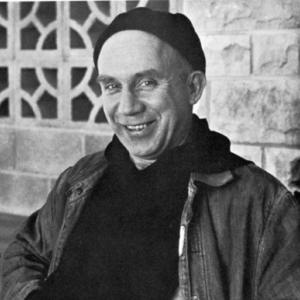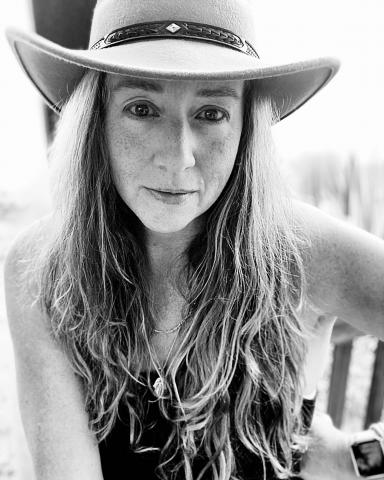
Cathleen Falsani is a longtime religion journalist and author of six nonfiction books. You can follow her on Twitter @godgrrl and read more of her work via The Numinous World.
Posts By This Author
U2's Songs of Transcendence
Sunday evening I did something I haven't done in close to 30 years: I went to an actual record store and bought a brand-new U2 album on vinyl, took it home, pulled out the turntable, put on my headphones, sat on the floor, and stayed up way too late reading the liner notes and listening to the songs over and over again.
Lord, how I've missed this particular ritual.
When I was a teenager, late Sunday nights were when I indulged my secret pleasure by listening in bed (clandestinely so as not to incur the wrath of my parents for being awake well past my bedtime) to the "King Biscuit Flower Hour" on WPLR, the classic rock station in New Haven that was one of two (the other being a horrendous pop-40 station) that came in clearly on the FM stereo in my upstairs bedroom.
I listened, religiously, every Sunday night for years, hoping to hear a song by one of the British New Wave bands of which I was fond, or, if I was particularly lucky, by my favorite band on the planet: U2.
Sometimes weeks would go by without hearing a U2 song on those late Sunday nights, my ear pressed to the transistor radio secreted next to the pillow on my twin bed. But then, like a bolt of lightning — I'd hear Bono's voice or Edge's guitar begin to keen. It was a wee bit magical, although in retrospect today I might call it sacred.
All the waiting and listening was worth it. Always.
'Noah:' Deeply, Passionately Biblical
I’ll begin by cutting to the chase: Forget most of what you’ve read about Darren Aronofsky’s new film, Noah. It opens Friday. Go see it and decide for yourself.
Having said that, in my opinion Aronofksy’s Noah is a beautiful, powerful, difficult film worthy of the “epic” label. A vivid, visually spectacular reimagining of an ancient story held as sacred by all three Abrahamic religious traditions, it also is the most spiritually nuanced, exquisitely articulated exploration of the ideas of justice and mercy I’ve ever seen on a movie screen.
And despite what you may have heard elsewhere, Noah is deeply, passionately biblical.
The Fallacy of Good v. Evil: A Q&A with 'Noah' Writer Ari Handel
Last Sunday in Los Angeles, Cathleen Falsani sat down with Ari Handel, a screenwriter and frequent collaborator with Noah director Darren Aronofsky, with whom he co-wrote the film and the graphic novel, Noah, upon which it was based, to discuss some of the extra-biblical elements of the $150 million movie.
Longtime friends Handel and Aronofsky were suitemates at Harvard University. Before becoming a screenwriter and film producer, Handel was a neuroscientist. He holds a PhD in neurobiology from New York University. He was a producer on Aronofsky’s films Black Swan, The Wrestler, and The Fountain (which he co-wrote with Aronofsky), and had a small role as a Kabbalah scholar in the director’s debut film, 1998’s Pi.
Editor’s Note: The following Q&A contains some spoilers about the film. It has been edited for length.
Anderson Creates Sacred Cinematic Space in 'Grand Budapest Hotel'
To my mind, all of Wes Anderson’s films are masterpieces in the truest sense of that word. But his most recent creation, Grand Budapest Hotel, is, perhaps, his chef d’oeuvre.
Anderson’s eighth feature-length film, which opened in limited release last week, Grand Budapest Hotel is a whimsical, hilarious, and surprisingly touching tale laden with nostalgia for a world and way of life most of us (including the 44-year-old director himself) never have experienced.
Set in the fictional Eastern European mountain region known as the “Republic of Zubrowka,” the plot centers around the character and adventures of Monsieur Gustave H. (Ralph Fiennes), the concierge of the eponymous Grand Budapest Hotel, one of Europe’s palatial “grand hotels. Gustave is something of a dandy, a throwback to a bygone era even in his heyday of the 1930s on the cusp of World War II.
)
Pete Holmes Searching for Comedic Communion
For a period in his younger life, the host of The Pete Holmes Show on TBS, which debuted late last year and follows Conan on late-night TV, was on a trajectory to become a youth pastor.
“That’s why I went to Gordon,” Holmes said, referring to his alma mater — Gordon College in Massachusetts, an evangelical Christian school — during a conversation on my back porch in Laguna Beach earlier this month.
“I wanted to be a pastor. I was going to be a youth pastor. I mean, I play guitar, I like to make people laugh. … The skill set of pastor and comedian are incredibly similar. You want to affect people. You’re good at reading rooms. You’re persuasive and you’re likable.”
Mary J. Blige, My Guardian Angel
In her book “The Funny Thing Is …,” Ellen DeGeneres describes being invited to God’s house for wine and cheese. When the Almighty walks into the room, Degeneres describes God this way:
“I would say she was about 47, 48 years old, a beautiful, beautiful black woman. And we just immediately hugged.”
When I think about the guardian angels who I’ve been told surround me like spiritual body guards, I picture the Angel In Charge as looking and sounding a lot like the Grammy-winning singer Mary J. Blige.
How appropriate, then, that Blige portrays a character in the upcoming holiday film, Black Nativity, (based in part on the Langston Hughes play) who appears to be an angelic being with a huge platinum-blonde Afro, dressed head-to-toe in silver-colored leather.
An Edgy Pastor Whose Edginess Isn’t Just Shtick
PASADENA, Calif. — The first thing most people mention when they talk about Rev. Nadia Bolz-Weber is her tattoos. She has many — most of them religious in nature, including a large icon of Mary Magdalene covering her right forearm.
Then they talk about how tall she is (6 foot 1), that she looks more like the lead singer of an all-girl punk rock band than a pastor and that she (unapologetically) swears a lot — even from the pulpit while preaching.
All of the above is true and part of what makes Bolz-Weber unique among high-profile pastors and so-called “Christian authors.” (I hate that term. The word “Christian” is best used as a noun, not an adjective.)
Sitting Down at Ann Romney's 'Family Table'
Ann Romney is a gracious woman.
Such is my first and lasting impression of Mitt Romney’s wife of 44 years and matriarch of a Romney clan that includes the couple’s five sons and more than 20 grandchildren.
When I arrived at a Mormon bookstore on a recent Thursday evening, the line of fans waiting to get Romney’s autograph on her new book, The Romney Family Table: Sharing Home-Cooked Recipes and Favorite Traditions, extended around the block.
No Turning Away, or Back, After Seeing '12 Years a Slave'
Before I saw the new film 12 Years A Slave, I knew nothing about Solomon Northrop or his astounding story of courage, forbearance, and faith.
I’d never heard of Northrop, an African-American freeman, who was born and reared in upstate New York in the early 1800s, well before the abolition of slavery in the rest of the nation. I’d not known of the historical practice of kidnapping freeborn black Americans in the North and selling them into slavery in the South.
I’d never heard about how Northrop, an accomplished violinist, was bamboozled into traveling from his farm in Hebron, N.Y., where he lived a prosperous life with his wife and three children, to Washington, D.C., for work, but was drugged, kidnapped, and sold in Louisiana. I’d never heard how he remained for a dozen years before heroically regaining his freedom in 1853 — one of a very few kidnapped freemen and freewomen ever to regain their freedom.
Every Prayer, Every Breath, a Step Toward a Cure
One morning each week, I ascend the outdoor staircase on the side of our little church and enter the Upper Room – a cozy, loftlike space above the pastors’ offices set apart for prayer.
Once inside, I turn up the volume on my phone, choose “Taize” or “Gregorian Chants” from the iTunes playlists, pull out my knitting and begin to pray.
The subject of my silent prayers is usually the person for whom I’m making the scarf or blanket or shawl. The prayers are as simple as the stitches and after a minute or two, they become as steady and unconscious as my breathing:
“Lord, I lift to you your child.” And then I say his or her name.
6 Reasons I Have a Major Crush on Pope Francis
When I see him smiling on TV or on the cover of a magazine in the checkout line at the grocery store, I get the warm fuzzies.
I follow him religiously on Twitter and have a Google news alert set up so I don’t miss a morsel of his latest awesomeness.
The photo meme of him smiling gape-mouthed at a little girl accompanied by the words, “You love Jesus too?!” is my screensaver, and I wear a pendant with a tiny image of him on one side and of St. Francis on the other.
I’ll Take my Salvation Without the Snakes, Please
If there were such a thing as “spiritual hazard pay” for columnists, I would be filing a claim after watching the first two episodes of the new series “Snake Salvation,” which debuts Tuesday, Sept. 10, on the National Geographic Channel.
God, I hate snakes. I find them utterly repellent; always have. When I was a toddler, my parents had to carry me out of the snake house at the zoo so I would stop screaming as if someone were trying to kill me.
Were it not for professional obligation — you’re welcome, by the way — you would sooner have found me shaving my head with a straight razor than watching a couple of hours of television dedicated to snake handling and its (alleged) spiritual import.
The Unsilenced Voice of Seamus Heaney
One of my favorite stories is about the interview I wanted most, but didn’t get.
It was 2005 and I had just signed a contract to write what would be my first book — a collection of profiles of mostly well-known people about their spiritual lives. Artists. Writers. Thinkers. Scientists. The odd rock star.
Sitting in my publisher’s office, she asked me to dream out loud: If I could interview anyone for the project, who was No. 1 on my wish list?
I answered without hesitation: Seamus Heaney.
Catching Up and Catching Grace with Singer-Songwriter Sam Phillips
This world is so beautiful
For no reason at all
When life circles around
And you can’t see straight
– from “Can’t See Straight” by Sam Phillips
"Push Any Button,” the first new physical album in five years from singer-songwriter Sam Phillips, is a blithe, fetching exploration of life’s flip side — after the flush of youth, after the heartbreak, after the bottom falls out and the road bends and you head in a wholly unexpected direction that turns out to be exactly where you need to be.
“Push Any Button,” which dropped Aug. 13, looks to the future by examining the past, viewing both through a lens of stubborn (and optimistic) grace.
Walter White and the Gospel According to ‘Breaking Bad’
Wither Walter White?
How the morality tale of a cancer-stricken chemistry teacher who transforms himself (first by desperation and then through sheer hubris) into a cold-blooded, Machiavellian drug kingpin will end is what legions of fans of AMC’s Emmy-winning Breaking Bad want to know.
But after the first episode of the series’ final season aired on Aug. 11, the answer to what happens to Walter White (Bryan Cranston) remains a mystery — at least for another seven weeks.
Since its debut in January 2008, Breaking Bad has taken its audience on a spiritual journey — following Walt’s soul on a slow, steady descent into a hell of his own creation.
“Fleeting moments of possible restoration for Walter occur throughout the series,” Blake Atwood writes in the new book The Gospel According to Breaking Bad, which was released as an e-book to coincide with the season premiere.
A Thoroughly Modern Mystic Makes His Way to the Big Screen
Don’t sing love songs, you’ll wake my mother
She’s sleeping here right by my side
And in her right hand a silver dagger,
She says that I can’t be your bride.
— from “Silver Dagger” by Joan Baez
It was their song — the young, winsome brunette and her silver-pated lover with the sparkly eyes.
“All the love and all the death in me are at the moment wound up in Joan Baez’s ‘Silver Dagger,’” the man wrote to his lady love in 1966. “I can’t get it out of my head, day or night. I am obsessed with it. My whole being is saturated with it. The song is myself — and yourself for me, in a way.”
He yearned for her. He was heartbroken. And he was Thomas Merton — the Trappist monk, celebrated author, and perhaps most influential American Catholic of the 20th century.
It’s a chapter of the thoroughly modern mystic’s life that is no secret to his legions of fans, detractors, and scholars of his prolific work, including the best-selling autobiography, The Seven-Storey Mountain.
Now Merton’s complex love life is the subject of a forthcoming feature film, The Divine Comedy of Thomas Merton.
There’s Something in the Air: Grace
Rather than a Third Great Awakening I believe we are standing in the threshold of a Great Grace Awakening. It’s a move of the Holy Spirit drawing people away from legalistic and fear-based beliefs to a place some of us would call grace.
On the surface, it may seem to fly in the face of some traditional Judeo-Christian ethics. But it is aligned with a broader, more universal ethic that seems to be developing around genuine Christian love and grace — the very essence of Jesus’ ministry and what makes it so revolutionary — as guiding principles.
Grace is the reason for the incarnation. God became human and walked in our sandals because God knows us and wants us to be known.
Grace says that there is nothing we could ever do that would make God love us less. And grace tells us that there’s nothing we could ever do that would make God love us more. You are loved simply because you are and for all of who you are. Full stop.
Love is Greater Than Faith
The first thing I did when I read the U.S. Supreme Court’s decisions in the cases involving the Defense of Marriage Act and California’s Prop 8 on Thursday morning was offer a silent prayer.
It was short — just two words — completely heartfelt and probably far more eloquent than anything I’ll manage to write in this space today.
“Thank you,” I told God.
Mumford & Sons: Hootenanny for The Soul
“Listen to the words,” the young woman behind me stage-whispered to her chatty date. “Are you listening?”
He wasn’t. But I was and so was most of the rapt, standing-room-only crowd that crammed the Greek Theatre at UC Berkeley for the second of three sold-out Mumford & Sons concerts late last month.
This is what I had come for — not just a concert, but a shared experience with a congregation of strangers (and a few friends).
Finding Hope and Wholeness in My Son’s Return to Africa
Look for a billboard on the right and a sign on your left. There’s a dirt road. Turn there.
In this part of the world, most of the streets have no names. So the directions we were given to find the new compound where my son’s Malawian relatives relocated a few months earlier were pretty specific given the circumstances.
We had hoped to be able to visit with Vasco’s 16-year-old half-brother, Juma, his Aunt Esme, and a handful of cousins and other relations for a couple of hours. By the time we found the family’s new compound, we had less than an hour before we had to get back on the road, meet the rest of our traveling companions, and head north before the sun fell.
I was heartbroken. But when we pulled up in our van, Vasco’s relatives were so happy to see us (and vice versa) that even the woefully short visit felt richly blessed. It had been three years since we’d seen each other. The last time was in May 2010 when Vasco, my husband, and I traveled from California to Blantyre for our adoption hearing. We spent a month in Blantyre and were able to get to know Vasco’s extended family (or, sadly, what remains of it) and begin piecing together our son’s complicated biography.
Since our last visit, Vasco, now 13, has grown about a foot and then some. He’s also traded his close-cropped “Obama cut” for Bob Marley-esque locks. Vasco wasn’t the only one who’d changed – visibly and otherwise.
Malawi is one of the poorest countries on the planet, with more than 9 million people living on about $1.25 a day. HIV/AIDS, which we believe claimed the lives of Vasco’s birth parents before he would have entered kindergarten, remains a critical health issue. Among 15- to 49-year-olds, the HIV/AIDS rate hovers above 10 percent despite widespread efforts to combat the fully preventable disease.
Malaria, tuberculosis, and diarrhea-related fatalities remain high in Malawi. So does unemployment, particularly among younger workers in urban areas such as Blantyre, where it is approximately 70 percent.


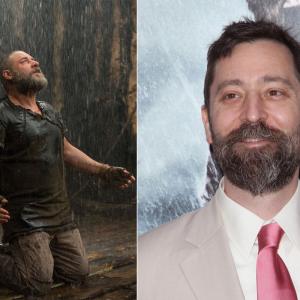
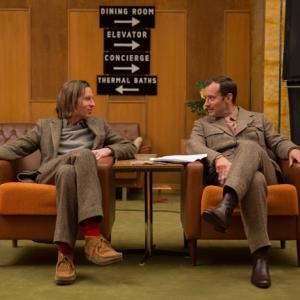

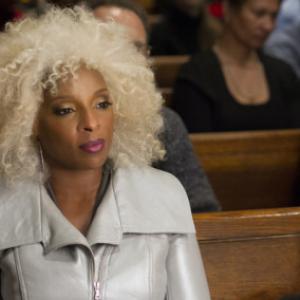
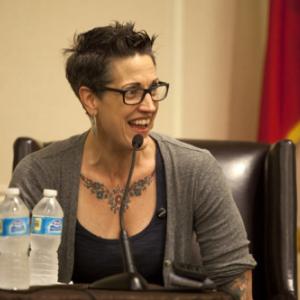

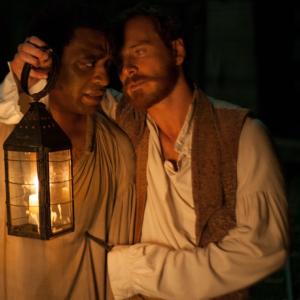


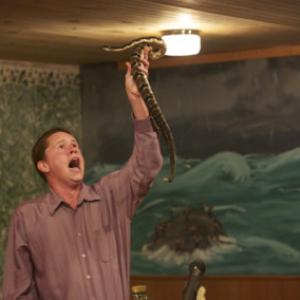
![Irish poet Seamus Heaney By Sean O'Connor [Public domain], via Wikimedia Commons Irish poet Seamus Heaney By Sean O'Connor [Public domain], via Wikimedia Commons](https://sojo.net/sites/default/files/styles/large_square/public/blog/Seamus_Heaney.jpg?itok=4eGX5j77)


